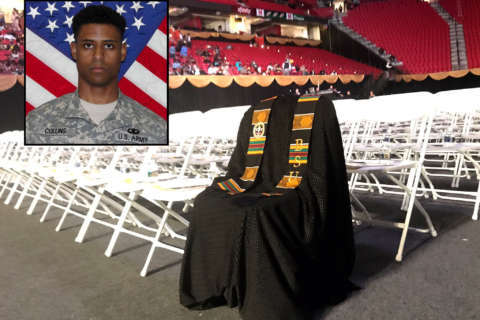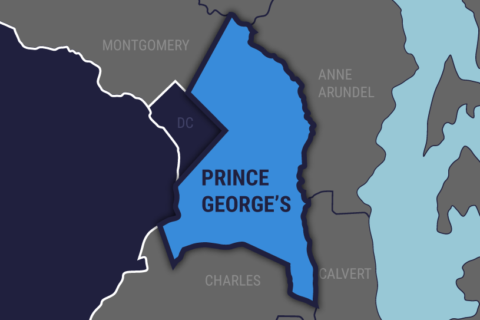UPPER MARLBORO, Md. — Almost 10 months after Army Lt. Richard Collins III was stabbed to death while visiting the University of Maryland, prosecutors have provided few details laying out why they believe Sean Urbanski killed the graduating Bowie State senior, and Urbanski’s lawyers have offered few clues of a possible defense.
The specifics of both the prosecution and defense strategies may remain secret until Urbanski goes on trial in July.
Urbanski, who is white, is charged with first-degree-murder in the death of Collins, who was black. Urbanski has also been charged with a hate crime.
Urbanski’s attorneys filed a motion stating prosecutors had not provided enough specifics about the crimes they allege Urbanski committed.
Prince George’s County prosecutors have countered, saying the request for more information from Urbanski’s attorneys is not appropriate.
“What he seeks from the State is a delineation of the precise theory the State intends to pursue,” wrote assistant state’s attorney Joseph Ruddy. “The State is under no obligation to so specify which theory it is pursuing at any time.”
In October 2017, when announcing the hate crime charge, Prince George’s County State’s Attorney Angela Alsobrooks said prosecutors “are comfortable that the motive in this case was race — Lt. Collins was killed because of his race.”
Shortly after his arrest, University of Maryland police chief David Mitchell said Urbanski was a member of a Facebook group called “Alt-Reich,” which spread hatred toward minorities, “and especially African-Americans.”
In an early court hearing, defense attorney William Brennan told a judge “alcohol and substance abuse may have played a significant role in all of this.” Brennan did not return an email seeking an update on a possible defense.
Prince George’s County prosecutors have said they intend to seek a life sentence without the possibility of parole. The state charge of hate crime resulting in death carries a sentence of 20 years.
However, federal hate crimes involving murder could make a defendant eligible for the death penalty.
The FBI’s Baltimore office has been investigating the incident, but has not said whether it will seek federal hate crime charges.








